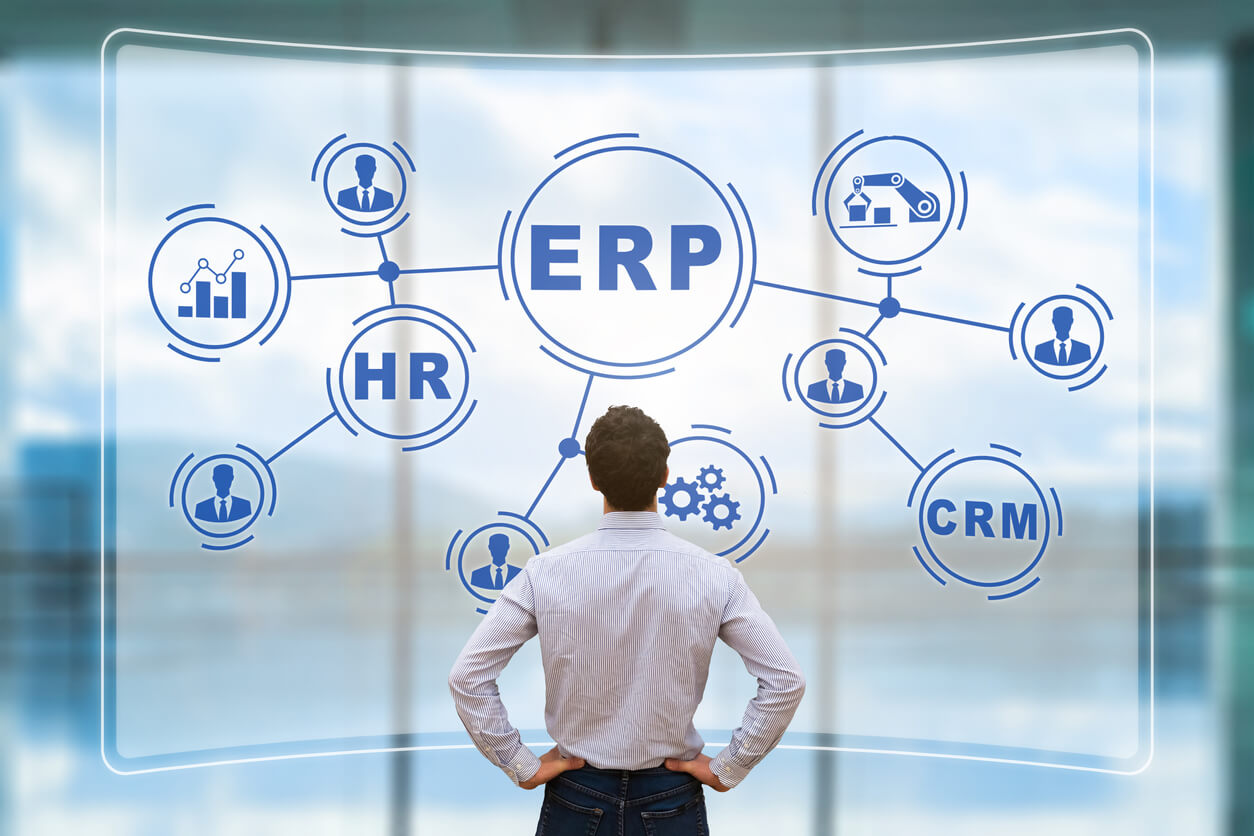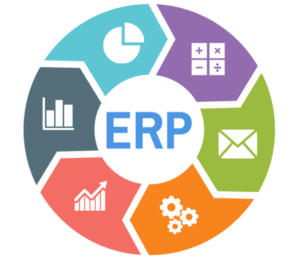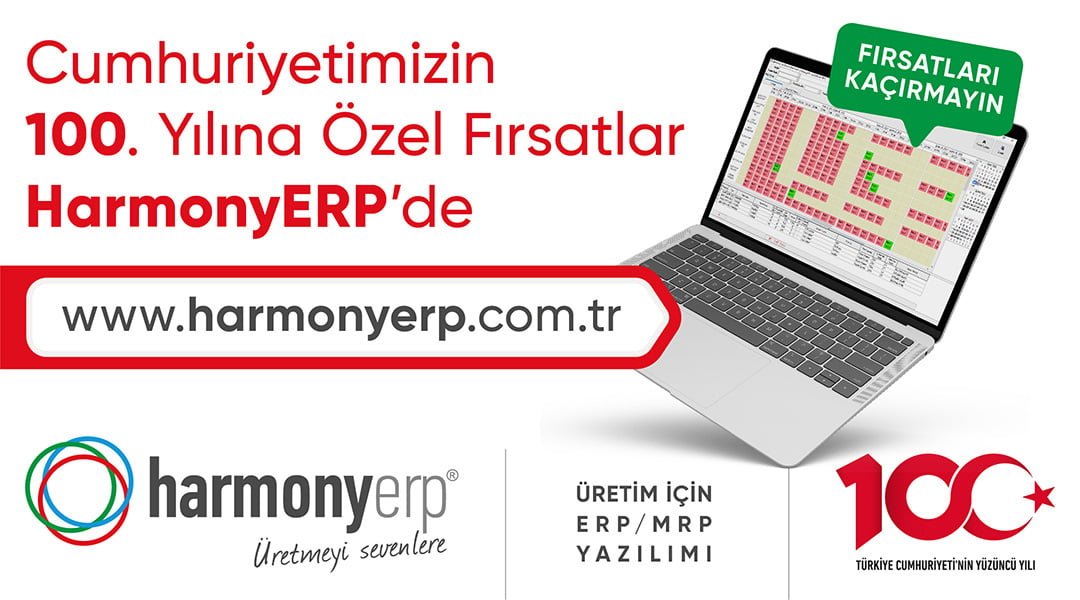Importance of ERP System on Businesses

In today’s business world, businesses have to adapt rapidly to ever-changing market conditions and customer expectations. In this dynamic environment, businesses need to manage their resources effectively and optimize their business processes. In this context, ERP (Enterprise Resource Planning) systems are becoming increasingly important for businesses. ERP systems provide integration and automation of business processes by managing different functions of the enterprise through a single central system.
The importance of the ERP system for businesses is highlighted by the fact that it offers the perfect solution to the speed, efficiency and integration needs of the modern business world. By combining information from different parts of the business, these systems accelerate decision-making and optimize business processes. By enabling all business processes to be managed on a single platform, ERP guarantees data consistency, reduces duplication in business processes and facilitates the flow of information between different departments. This integration enables businesses to be more flexible and dynamic, so they can respond faster to market changes and customer demands. Furthermore, ERP systems allow businesses to manage costs more effectively and improve operational efficiency, which is critical for competitive advantage and sustainable growth.
The analytical tools and real-time data access provided by ERP systems enable managers to make critical business decisions based on information. This enables businesses to better understand market trends, allocate resources more rationally and improve risk management. The comprehensive view that ERP offers allows businesses to better manage every area, from supply chain to customer relationships. In conclusion, ERP systems are a fundamental investment that enables businesses to survive and thrive in a complex and rapidly changing global business environment. Thanks to these systems, businesses can target operational excellence while at the same time capitalizing on strategic growth and innovation opportunities.
Definition and Scope of ERP System
ERP are software systems that enable the integrated management of information in different parts of the business. It unifies the core functions of the business such as finance, human resources, production, sales, supply chain. This integration allows businesses to be managed more efficiently and effectively.
The ERP (Enterprise Resource Planning) system is an integrated software solution that enables businesses to manage their various functional areas through a single centralized system. These systems integrate data flow and business processes by combining the core functions of the business such as finance, human resources, production, sales, supply chain management. The main purpose of ERP is to increase efficiency and effectiveness in business processes, ensure data consistency and support decision-making processes. This allows businesses to manage their resources more effectively, reduce operational costs and improve customer service. ERP systems have a modular structure, so businesses can choose the modules they need and customize the system in accordance with their business processes.
The scope of ERP systems ranges from simple accounting to complex manufacturing processes, from customer relationship management to supply chain optimization. Modern ERP solutions offer businesses a dynamic and flexible operational structure by integrating technological innovations such as cloud-based services, mobile access, real-time data analysis and artificial intelligence. These solutions help businesses compete on a global scale, manage operations in different markets and geographies, and adapt to rapidly changing market conditions. In addition, ERP systems support risk management and compliance processes, making it easier for businesses to comply with legal regulations and industry standards. In conclusion, the ERP system is an essential tool for businesses to operate successfully in the complex and integrated business world, enabling them to achieve operational excellence and achieve strategic growth objectives.
Integration of Business Processes
ERP systems facilitate the flow of information between departments by connecting business processes. This integration enables business processes to be carried out in a more transparent and streamlined manner. For example, an order from the sales department is automatically forwarded to the production, finance and logistics departments, making order processing and delivery faster and error-free.
Supporting Decision Making Processes
ERP systems provide business managers with real-time data and analysis. This information enables managers to make more informed and faster decisions. For example, detailed information on inventory levels, sales trends and financial performance helps the business adapt quickly to market conditions.
Increasing Customer Satisfaction
ERP systems enable faster and more accurate processing of customer orders. Furthermore, thanks to customer relationship management (CRM) modules, detailed information about customer preferences and behavior can be collected. This information allows businesses to develop strategies to increase customer satisfaction.
Improving customer satisfaction is vital for businesses because customer loyalty and repeat business is one of the cornerstones of long-term business success. Businesses can increase customer satisfaction by meeting and exceeding customer expectations. This process involves a deep understanding of customers’ needs and preferences, delivering quality products and services, and aiming for excellence in customer service processes. With the advancement of technology, businesses can now analyze customer data, deliver personalized experiences and respond quickly to customer feedback. This increases customer loyalty and serves as a powerful tool of word-of-mouth marketing. Furthermore, a continuous improvement approach allows businesses to continuously improve the customer experience and adapt to the changing needs of the market.
ERP (Enterprise Resource Planning) systems play a critical role in increasing customer satisfaction because they provide businesses with a 360-degree customer view by collecting customer information in a centralized database. ERP systems enable sales, marketing and customer service departments to work in a more coordinated manner, helping to provide fast and consistent responses to customer inquiries and problems. Furthermore, ERP systems automate order processing and logistics processes, enabling faster and error-free processing of customer orders. This helps to shorten delivery times and increase product/service quality, which directly affects customer satisfaction. Thanks to the analytical tools provided by ERP, businesses can better understand customer behavior, develop products and services that are more tailored to customer needs, and thus continuously increase customer satisfaction. The integration and efficiency of ERP systems allows businesses to adopt a customer-oriented approach and gain competitive advantage by focusing on customer satisfaction.
ERP System Implementation and Management
Successful implementation and management of ERP systems is a critical process for businesses. This process includes steps such as selecting the right ERP system, system customizations, employee training and ongoing support. In addition, continuous updating and improvement of the ERP system enables businesses to adapt to their changing needs.
Implementing and managing an ERP system is a transformative but challenging process for businesses. The success of this process plays a critical role in achieving the strategic goals of the business and increasing its operational efficiency. ERP implementation ensures standardization of business processes, integration of data and information flow and supports decision-making mechanisms. However, the success of this process depends on selecting the right ERP system, effective project management, accurate analysis and redesign of business processes, user adoption, and ongoing support and maintenance. The implementation process typically includes customization, configuration, testing and training phases and can vary according to the size, complexity and industry of the business. In this process, it is important for businesses to benefit from expert consulting services and to establish good communication and cooperation between their internal teams.
Effective management of the ERP system continues after the implementation process is complete. The system should be continuously updated and improved to adapt to the changing needs of the business. This enables the business to keep pace with technological developments and maintain its competitive advantage. User training and support services ensure that users can use the system effectively and that potential problems are quickly resolved. There should also be regular audits on issues such as data security and system performance. Continuous management of the ERP system is vital for the business to adopt a culture of continuous improvement and maximize the benefits of its technology investment. Implementing and managing an ERP system is a strategic investment for the long-term success of the business and this process requires careful planning and execution at all levels of the business, from management to the technical team.
ERP systems allow businesses to manage their resources more effectively, optimize business processes and increase market competitiveness. These systems enable businesses to act more quickly and flexibly, reduce costs and increase customer satisfaction. Therefore, ERP systems have become an indispensable tool for businesses in today’s business world.

Previous Post
What is ERP and how does it work?
Next Post
How Does an ERP System Increase Productivity?






